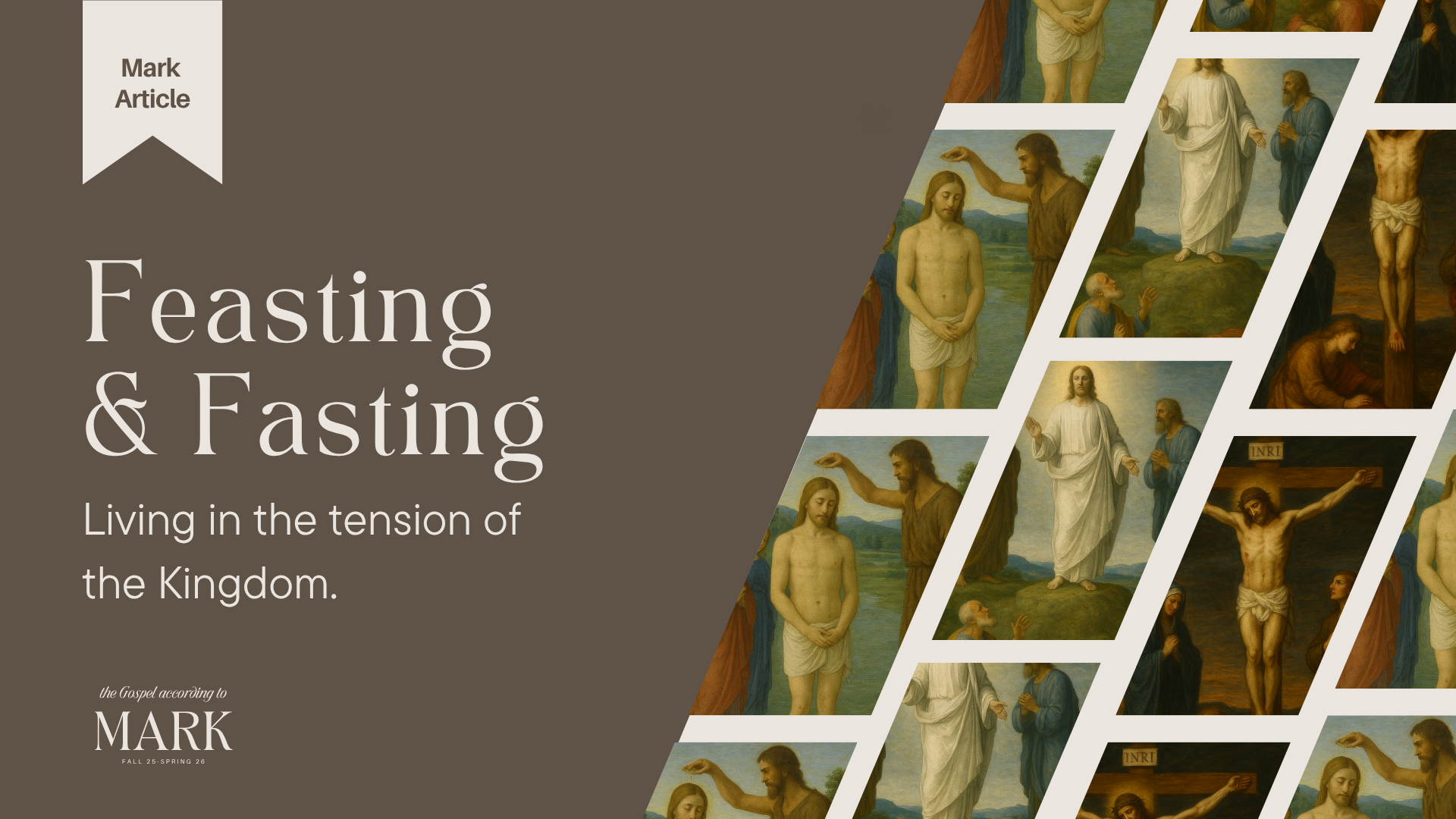Feasting and Fasting: Living in the Tension of the Kingdom
“The wedding guests cannot fast while the groom is with them, can they? As long as they have the groom with them, they cannot fast. But the time will come when the groom will be taken away from them, and then they will fast on that day.”
Mark 2:19–20
The scene unfolds at the home of Levi, the tax collector. Jesus and His disciples are at the table with Capernaum’s notorious - laughing, eating, celebrating. The room is filled with Capernaum’s outcasts and sinners, those least likely to be invited to a religious gathering. At the center of it all sits Jesus, the unexpected guest of honor.
To the scribes and Pharisees, this looks like revelry and hedonism. How could a man of God feast while others are fasting? Their confusion becomes the stage for Jesus’ first parable in the Gospel of Mark.
The Bridegroom and the Feast
Jesus intentionally compares Levi’s dinner to a wedding banquet. When the bridegroom is present, feasting is the only appropriate posture while fasting would be out of place. In this moment, Jesus identifies Himself as the Bridegroom, whose presence inaugurates a new covenant of grace. His arrival marks the beginning of the wedding celebration.
But in the middle of this parable, Jesus mentions a subtle twist: “The Bridegroom will be taken away.” The joy of the wedding is interrupted by loss. This is the first shadow of the cross in Mark’s Gospel. The Groom will be stripped of His garments so that His Bride might be clothed in righteousness. He will drink the cup of wrath so that she (we) might drink the cup of grace.
At the cross, the Bridegroom is taken away. Yet this is not the end of the story, it is the beginning of redemption - which comes with a cost.
Between the Feast and the Fast
Christians now live in the tension between two realities: the already-and-not-yet kingdom of God. When the Bridegroom came, His presence inaugurated time of celebration. But now He is in heaven and we have to await His return.
The night before His death, Jesus told His disciples,
“I will not drink again of this fruit of the vine until that day when I drink it new with you in my Father’s kingdom.” (Matthew 26:29)
We live between these two realities. The wine represents Jesus’ suffering, but also the joy of what is to come. Until the wedding feast of the Lamb, our lives are marked by both feasting and fasting.
Practicing the Kingdom
Spiritual disciplines are how followers of Jesus embody this tension. They are not empty rituals, or religious performances, but sacred practices that shape us to live in alignment with God’s reality.
Feasting is an act of faith and celebration, joy and delight. It reminds us that there is joy even in a world of sorrow, and that the goodness of God can be tasted here and now. We feast at the Lord’s Table, receiving communion as a foretaste of the greater banquet to come. We feast in community, rejoicing together in the grace that welcomes sinners home. It declares that God’s Kingdom has broken in, even in the presence of our enemies (Psalm 23:5).
Fasting, on the other hand, teaches us to hunger for what only God can satisfy. It acknowledges that creation still groans for redemption. We fast, not to earn God’s favor, but to quiet our appetites and listen for the Spirit’s voice. In fasting, we align our hearts with the ache of the world while fixing our hope on the promise that all things will be made new.
Formed by Rhythms of Grace
Feasting and fasting are part of a larger rhythm of formation that includes the spiritual disciplines of work and rest, silence and singing, solitude and community. Through these practices, we participate in the life of the Kingdom that has already come in Christ and is yet to come in fullness.
When we feast, we proclaim that the King has come. When we fast, we cry out for His return. And when we practice these rhythms together, we live as citizens of heaven on earth, people who embody the beauty, tension, and hope of the gospel story.
As a church community I want to invite you into these rhythms of feasting and fasting. Each week, intentionally set aside at least one meal to fast and one meal to feast with other followers of Jesus.

